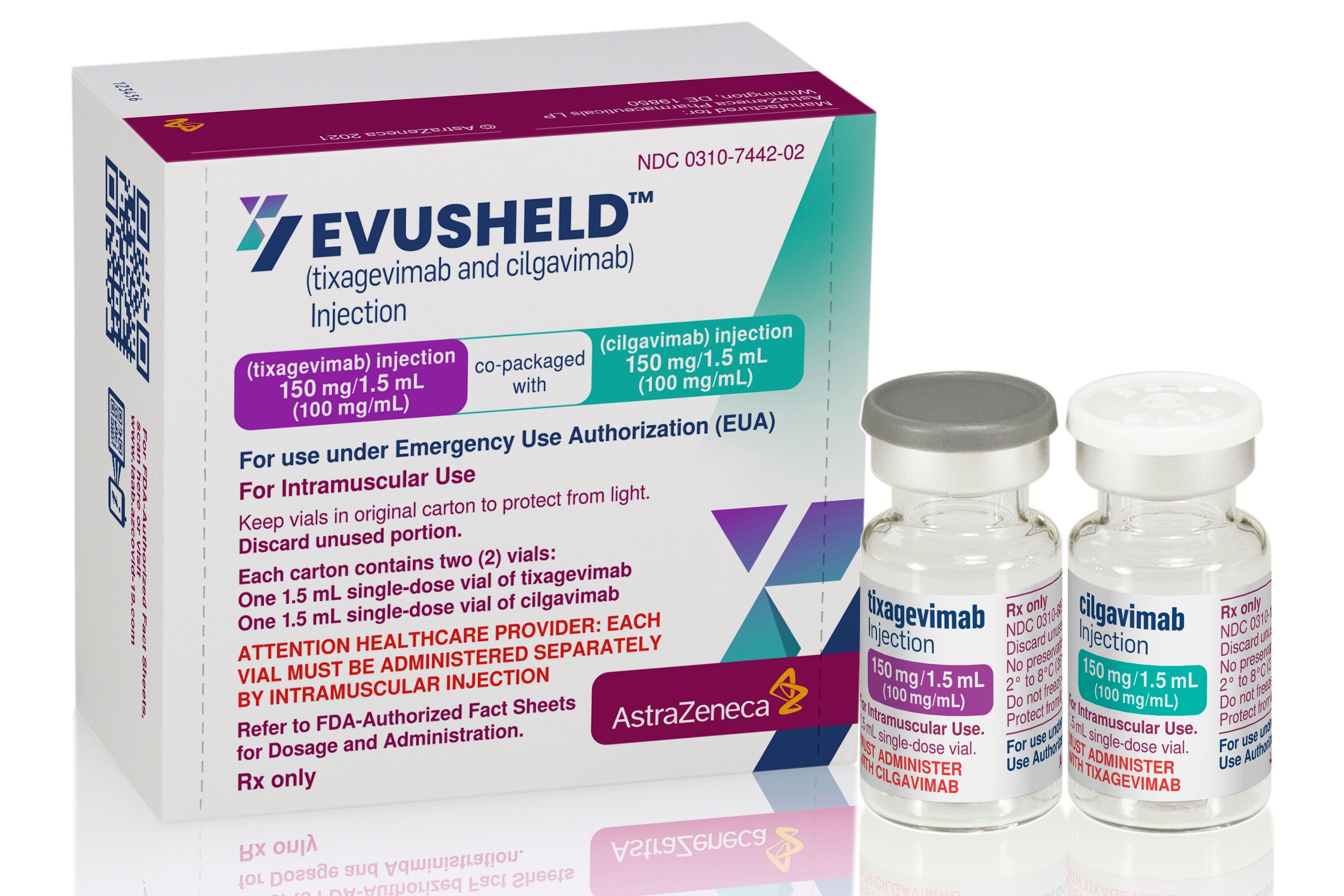US OKs new COVID-19 antibody drug for high-risk patients
U.S. officials have authorized a new COVID-19 antibody drug for people with serious health problems or allergies who can’t get adequate protection from vaccination

Federal health officials on Wednesday authorized a new COVID-19 antibody drug for people with serious health problems or allergies who can’t get adequate protection from vaccination.
Antibody drugs have been a standard treatment for treating COVID-19 infections for over a year. But the AstraZeneca antibody drug cleared Wednesday by the Food and Drug Administration is different. It's the first authorized for long-term prevention against COVID-19 infection, rather than a short-term treatment.
People who could benefit from the antibody drug include cancer patients, organ transplant recipients and people taking immune-suppressing drugs for conditions like rheumatoid arthritis. Health experts estimate about 2% to 3% of the U.S. population falls into that group.
“These people still have to shelter in place because they’re at really high risk of severe disease and death,” said Dr. David Boulware of the University of Minnesota ahead of the announcement. “So having this therapy will enable a lot of them to get back to their normal lives.”
Specifically, the FDA authorized the AstraZeneca drug called Evusheld for adults and children 12 and older whose immune systems haven't responded adequately to COVID-19 vaccines or have a history of severe allergic reactions to the shots. Regulators said the required two antibody injections may be effective at preventing COVID-19 infections for six months.
Like similar drugs, AstraZeneca's delivers laboratory-made versions of human antibody proteins, which help the immune system fight off viruses and other infections.
The FDA and other health authorities have stressed that antibody drugs are not a substitute for vaccines, which are the most effective, long-lasting and economical form of virus protection. Antibody drugs are tricky to manufacture and often cost more than $1,000 per dose compared with vaccines that are typically under $30 per shot.
The FDA has authorized three other antibody therapies from Regeneron, Eli Lilly and GlaxoSmithKline, with the U.S. government purchasing hundreds of thousands of doses. All require an IV or injection. They are used to treat people with recent infections who have the highest risk of progressing to severe COVID-19 because of other health issues. Two can be used to prevent infection after a possible coronavirus exposure.
AstraZeneca’s drug would be used differently— only as a long-term preventive measure in people who have increased vulnerability to the virus.
In a company study, people who received Evusheld had a 77% lower risk of infection than people who received a dummy shot over six months, the FDA said.
___
The Associated Press Health and Science Department receives support from the Howard Hughes Medical Institute’s Department of Science Education. The AP is solely responsible for all content.
Bookmark popover
Removed from bookmarks